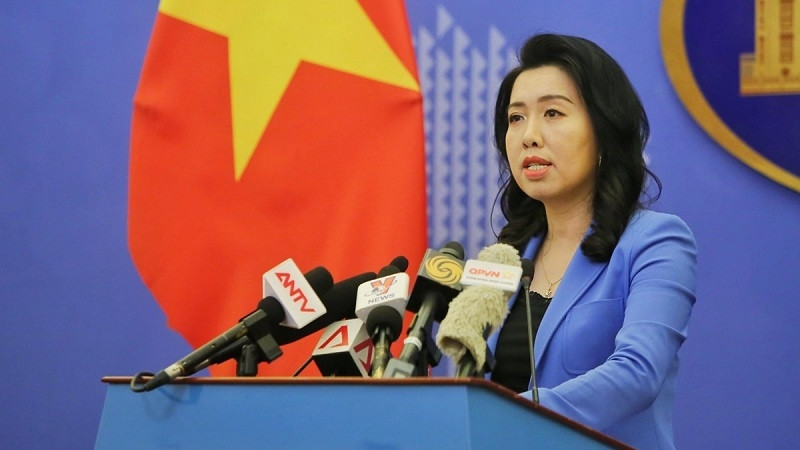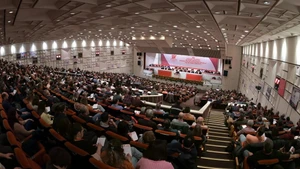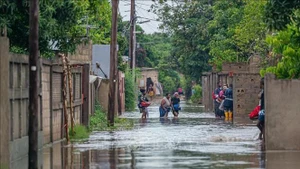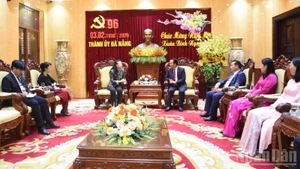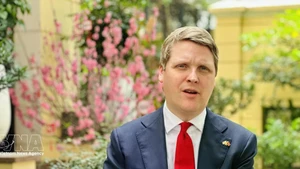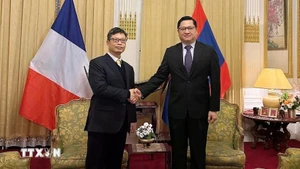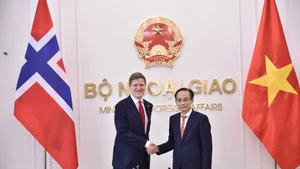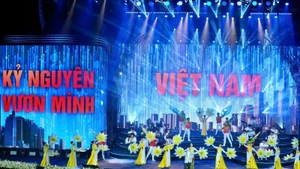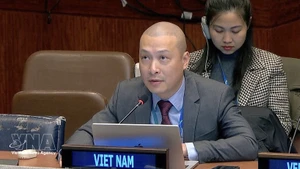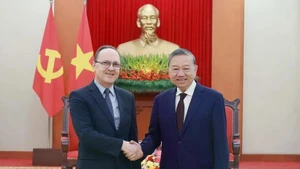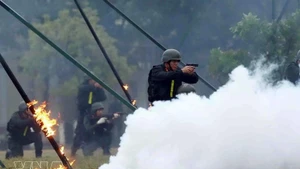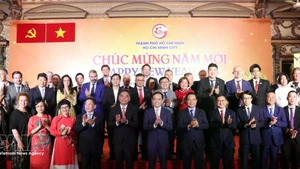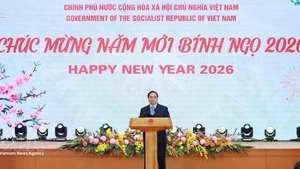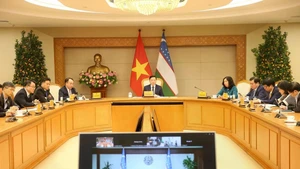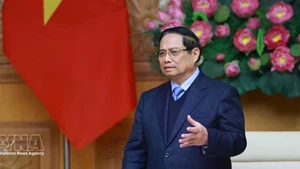While answering reporters’ queries relating to Haiyang Dizhi 8’s return to Vietnam’s exclusive economic zone and continental shelf at a press conference on September 12, Hang said that Vietnam has also pointed out adverse impacts of the vessel group’s violations on the friendship between the two countries, as well as peace, security and stability in the East Sea and the region.
“For those reasons, Vietnam demands China to immediately stop its serious violations and withdraw all of the vessels from Vietnam’s territorial waters,” she stressed.
Regarding China’s recent statements on Vietnam’s economic activities in its territorial waters, the spokeswoman affirmed Vietnam’s consistent viewpoints that all of its maritime economic activities, including oil and gas exploitation, have been carried out within Vietnam’s exclusive economic zone and continental shelf as defined from the land territory in line with the 1982 UNCLOS to which both Vietnam and China are members.
Hang emphasised that the 1982 UNCLOS serves as the only legal basis for nations to determine their territorial waters as well as their rights to their territorial waters, which has been observed by countries, recognised by courts and supported by prestigious international lawyers.
Therefore, no country can give claims on waters in the East Sea that exceed geographical limitations and go beyond contents of the 1982 UNCLOS, she added.
Illegal and unsuitable claims which are unconformable to the 1982 UNCLOS cannot be used as the foundations to assert the existence of disputed and overlapped waters, the spokeswoman said.
These above-said acts that hinder Vietnam’s oil and gas activities in its territorial waters are violating international law and the 1982 UNCLOS, Hang said.
The spokeswoman also reaffirmed Vietnam’s stance on its sovereignty over Hoang Sa (Paracel) and Truong Sa (Spratly) archipelagos.
* While responding to reporters’ queries regarding the Committee to Protect Journalists’s report that included Vietnam in the list of ten most censored countries, Hang said that Vietnam absolutely rejects false contents, which are based on inaccurate and biased information about Vietnam.
“In Vietnam, the freedom of speech in general and the freedom of the press in particular are prescribed specifically in the 2013 Constitution and many relevant legal documents,” she affirmed.
The country is making efforts to perfect its legal system in order to ensure the freedom of speech on the media, cyber space and other forms, while protecting people from news that is fake, not suitable to Vietnamese habits and customs, biased and inaccurate, and stirs up hatred, Hang added.
